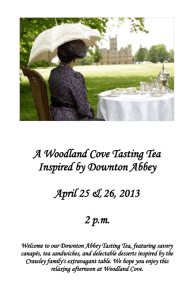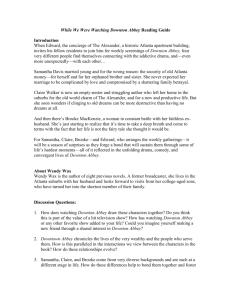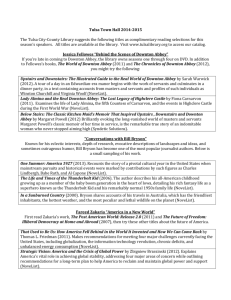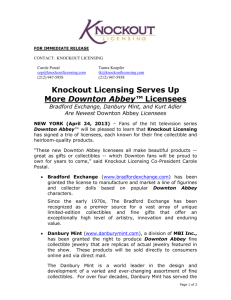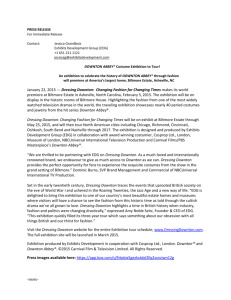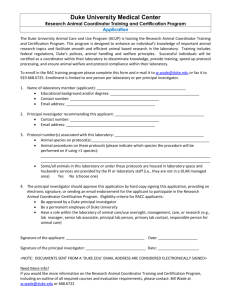If You Like `Downton Abbey`
advertisement
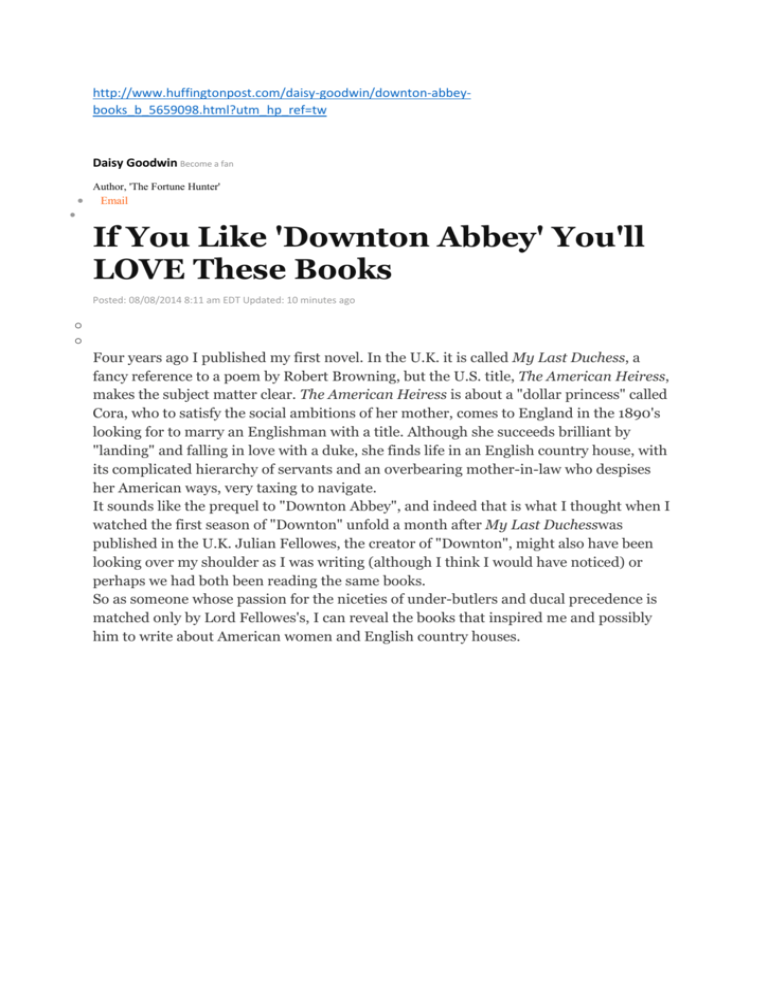
http://www.huffingtonpost.com/daisy-goodwin/downton-abbeybooks_b_5659098.html?utm_hp_ref=tw Daisy Goodwin Become a fan Author, 'The Fortune Hunter' Email If You Like 'Downton Abbey' You'll LOVE These Books Posted: 08/08/2014 8:11 am EDT Updated: 10 minutes ago o o Four years ago I published my first novel. In the U.K. it is called My Last Duchess, a fancy reference to a poem by Robert Browning, but the U.S. title, The American Heiress, makes the subject matter clear. The American Heiress is about a "dollar princess" called Cora, who to satisfy the social ambitions of her mother, comes to England in the 1890's looking for to marry an Englishman with a title. Although she succeeds brilliant by "landing" and falling in love with a duke, she finds life in an English country house, with its complicated hierarchy of servants and an overbearing mother-in-law who despises her American ways, very taxing to navigate. It sounds like the prequel to "Downton Abbey", and indeed that is what I thought when I watched the first season of "Downton" unfold a month after My Last Duchesswas published in the U.K. Julian Fellowes, the creator of "Downton", might also have been looking over my shoulder as I was writing (although I think I would have noticed) or perhaps we had both been reading the same books. So as someone whose passion for the niceties of under-butlers and ducal precedence is matched only by Lord Fellowes's, I can reveal the books that inspired me and possibly him to write about American women and English country houses. The best book written by an American heiress is The Glitter and the Gold, by Consuelo Vanderbilt, the greatest of the 500 American women who married into the English aristocracy before the First World War. Beautiful and eye-wateringly rich, the author was forced by her mother, Alva, into a marriage with the unappetising Sixth Duke of Marlborough. Consuelo loathed the duke, but quite enjoyed living in Blenheim Palace and entertaining royalty. Her biggest problem was the servants. When she wanted a fire lit (Blenheim had no other heating), she rang for the butler -- who looked affronted and told her that he would summon the footman who was responsible for lighting fires. In the end Consuelo lit the fire herself. Of course, like all autobiographies, this memoir is a cunning blend of fact and fiction. If you want to know what really happened, it is well worth reading Consuelo and Alva, by Amanda Mackenzie Stuart, which is a terrific double biography of the Duchess of Marlborough and her formidable mother. American girls in English country houses have been turning up in fiction since Henry James sent Isabel Archer to have tea on an English summer afternoon inThe Portrait of a Lady. Late nineteenth century novelists loved introducing American girls as a metaphor for New World energy and enterprise. Anthony Trollope sent another Isabel, Isabel Boncassen, the daughter of an American senator, to bewitch the Duke of Omnium's heir, Lord Silverbridge, in The Duke's Children. The Duke is dead set against his son marrying a vulgar American, but once he meets Isabel he can't hold out for very long. The gradual interweaving of English and American high society is described in Frances Hodgson Burnett's wonderful novel The Shuttle, published in 1907, which has a sprightly American heiress, Bettina Vanderpoel, triumphing over the dastardly Sir Nigel Anstruthers, who has married her sister Rosalie for her money and incarcerated her in his country pile. No American girl, heiress or otherwise would dream of getting on the boat without a copy of Titled Americans: A List of American Ladies Who Have Married Foreigners of Rank. This magazine, which was published quarterly in the 1890s, also had a "carefully compiled list of peers who are supposedly eager to lay their coronets and incidentally their hearts, at the feet of the all-conquering American Girl." This fascinating document has just been reissued with a new subtitle,The Real Heiresses' Guide to Marrying An Aristocrat. It's like a Victorian version of Match.com. But the best novel about all-conquering American girls has to be The Buccaneers. Edith Wharton wrote her last novel (she died before she could finish it) in 1937, but it is set sixty years earlier. The buccaneers are a quartet of American girls who stage a raid on the English aristocracy and make great marriages. Nan, the heroine (who is clearly based on Consuelo Vanderbilt), makes the fanciest match of all and marries the Duke of Tintagel -- but finds that life as a Duchess is not the happy ending she expected. "Downton" fans who revel in the details of country house life will enjoy The Edwardians, by Vita Sackville-West. Vita, who grew up at Knole, one of the grandest country houses in England in the late nineteenth century, writes about what she knows. Her hero, Sebastian, is the heir of Chevron, a magnificent estate with a legion of servants, including a man who is employed simply to wind the clocks. The book is candid about the corridor-creeping habits of the Edwardian upper classes: There was the adulterers' bell that rang at 5 a.m. so that the unfaithful could return to their rightful beds. No wonder that American girls were shocked by the morals of the aristocracy they had bought their way into; the standard advice given to girls going into society was "never comment on a likeness" when meeting someone's children. The best contemporary imagining of the upstairs/downstairs world is surely The Remains of the Day by Kazuo Ishiguro, which is an exquisitely written, deeply moving story of a butler and his feelings for the housekeeper, Miss Kenton. There are definite echoes of this book in Carson's relationship with Mrs. Hughes. English literature is full of books where the house is so important it is a character in itself - think of Pemberley in Pride and Prejudice, Brideshead in Brideshead Revisited and of course Manderley in Rebecca. But today, with a few exceptions, the great English country house with its fleet of servants no longer exists. Highclere Castle, where "Downton" is filmed, is hired out part of the time as a film set and banquet hall. "Downton Abbey" itself would be most likely be a country house hotel with a spa in the old stable block. More democratic I suppose, but not nearly as much fun to read (or write) about. MORE: Best New BooksDownton Abbey Books
